Educaţia financiară reprezintă un domeniu care se confruntă în această perioadă cu o pleiadă de provocări care vin din mediul online, mai ales de pe Facebook, unde informaţiile circulă foarte repede şi unele sunt de natură să alarmeze populaţia - cum ar fi creşterea indicilor ROBOR sau IRCC-, iar altele sunt false în legătură cu anumite creşteri de dobânzi sau cu acordarea de unele instituţii financiare nebancare a unor credite cu o aşa numită "dobândă zero", care nu există în realitate, au afirmat, ieri, participanţii la dezbaterea intitulată "Educaţia financiară şi sistemul bancar" organizată de Banca Naţională a României.
În deschiderea dezbaterii, Mugur Isărescu, guvernatorul BNR a spus:
"La BNR, facem educaţie financiară de peste 30 de ani, aşa cum ne obligă legea, mai bine zis am început să facem educaţia financiară odată cu înfiinţarea în anul 1991 a Institutului Bancar Român şi cu demararea în anul 1992 a activităţii de informare perioadică, inclusiv prin comunicate de presă, a cetăţenilor în legătură cu activitatea desfăşurată de noi. (...) Numai anul trecut în proiectele de educaţie financiară derulate de Banca Naţională, 80.000 de elevi şi studenţi au interacţionat cu specialiştii BNR din 13 agenţii şi 5 sucursale existente la nivelul naţional. 600 de unităţiu de învăţământ au participat la proiectele noastre de educaţie financiară. În proiectul Global Money Week au fost implicaţi 15600 de elevi. Dar nu este de ajuns; societatea românească are nevoie de mai mult pentru a face faţă provocărilor financiare moderne, mai ales că ţara noastră este pe ultimul loc în Uniunea Europeană privind nivelul de educaţie financiară şi privind accesul la serviciile financiare, înregistrându-se şi un decalaj ridicat între mediul urban şi cel rural. Încercăm să găsim şi să dezvoltăm modalităţi îmbunătăţite pentru anumite elemente de educaţie financiară la elevii din toate judeţele ţării. În acest scop, punem la dispoziţia instituţiilor implicate în procesul de educaţie financiară baza logistică a BNR, iar sediile noastre sunt spaţii deschise pentru toţi cei implicaţi în acest proces".
Prezentă la eveniment, Ligia Deca, ministrul Educaţiei a afirmat că este nevoie de alfabetizarea financiară care reprezintă o condiţie esenţială de funcţionare şi dezvoltare a societăţii.
"Acest tip de educaţie şi incluziune financiară reprezintă una dintre priorităţile Uniunii Europene. Ministerul Educaţiei are cu BNR încă din 2010 un protocol ce a fost reînnoit în 2013 privind educaţia financiară, disciplină a cărei curriculă a fost aprobată pentru prima dată în ciclul primar 2013-2014. Din păcate, în zonele defavorizate există un decalaj de performanţă educaţională faţă de mediul urban. De aceea, educaţia financiară trebuie să ajungă la fiecare copil din România", a spus ministrul Ligia Deca.
Consilierul prezidenţial Cosmin Marinescu a amintit că dezvoltarea educaţiei financiare se bucură de patronajul Preşedinţiei României şi a spus că este nevoie ca oamenii să aibă informaţii referitoare la costurile alegerilor pe care le fac şi la efectele directe şi indirecte ale acestora pe termen scurt şi lung asupra semenilor lor.
"Este important să cunoaştem că inflaţia de acum nu vine de la sine, că este rezultatul deciziilor politice din timpul pandemiei, peste care s-a adăugat spirala războiului din Ucraina, criza energetică şi orizonturile politicilor verzi. De aceea, educaţia financiară trebuie privită ca un activ societal care priveşte cetăţenii, mediul de business şi politica economică", a afirmat Cosmin Marinescu, care a mai precizat că situaţia economică actuală este una dificilă şi că perspectivele economice pentru anul viitor sunt grevate de incertitudini, fapt care a dat naştere unor anticipări recesioniste.
Referitor la educaţia financiară, Horia Constantinescu, preşedintele Autorităţii Naţionale pentru Protecţia Consumatorilor, a spus: "Educaţia financiară trebuie să devină obligatorie şi să ia în calcul că un consumator mediu informat nu are bagajul de cunoştinţe pe care îl estimăm şi îl evaluăm ca fiind unul necesar încheierii unui contract de creditare. Trebuie să conducem educaţia financiară către acest consumatorde tip mediu informat şi să ne asigurăm că el a înţeles tot ce i-a transmis banca înainte de a semna contractul de creditare. Ar trebui să găsim o metodă de simplificare a mesajului, chiar să existe un scadenţar cu ceea ce are de plătit viitorul client al băncii. Educaţia financiară trebuie să acopere toate canalele de comunicare. În caz contrar, mulţi dintre cei care cresc în familii împovărate de neplata ratelor, vor fi reticenţi în a apela la sistemul bancar, pentru că se vor considera victime colaterale ale neplăţii debitelor. Am convingerea că Asociaţia Română a Băncilor poate găsi proiecte potrivite, bine definite, pentru a compensa ce lipseşte societăţii, care are nevoie de surse de finanţare pentru depăşirea perioadelor dificile. De aceea, trebuie să cunoaştem consumatorul şi sistemul bancar să finanţeze creionare profilului consumatorului pentru a pregăti materialele necesare educării financiare a acestuia".
În cadrul evenimentului a fost prezentată şi o analiză a problemelor cu care se confruntă sistemul bancar din cauza educaţiei financiare precare a clienţilor. Din cele peste 7000 de reclamaţii contabilizate în sistemul bancar de analiza respectivă, majoritatea se referă la funcţionarea aplicaţiilor bancare, restanţe la plata creditelor, creditele online acordate de IFN-uri, creşterea ratelor bancare din cauza majorării Robor şi IRCC.
Organizatorii evenimentului au premiat şi cele mai bune proiecte de educaţie financiară făcută de către sistemul bancar din ţara noastră.
Proiectul "Şcoala de bani" al BCR a fost declarat cel mai bun program de educaţie financiară deoarece a oferit cursuri gratuite pentru peste 500.000 de copii, tineri şi adulţi şi a pregătit 1500 de funcţionari ai băncii ca profesori de educaţie financiară.
Cea mai proactivă bancă în educaţia financiară a fost desemnată Banca Transilvania datorită programului "ÎntrebBT", prin intermediul căruia peste 9 milioane de oameni au primit informaţii financiare. Pe site-ul băncii sunt peste 1700 de întrebări şi răspunsuri despre banking.

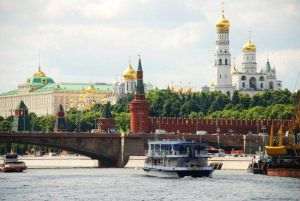

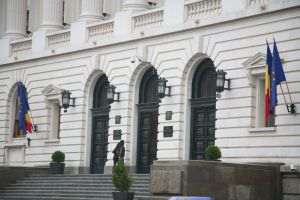




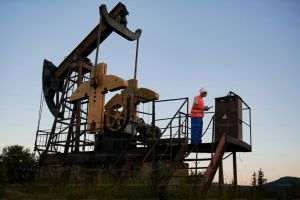
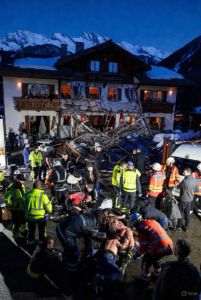
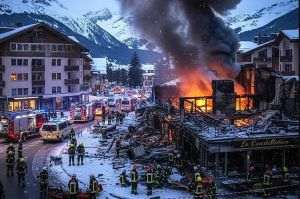
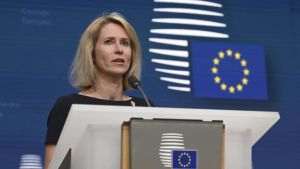





































1. fără titlu
(mesaj trimis de anonim în data de 19.10.2022, 13:43)
pe manole l au educat financiar strainii sa jupoaie romania bine!
2. fără titlu
(mesaj trimis de anonim în data de 19.10.2022, 14:08)
Intrebare:
La ce dobanzi a cumparat "fam base" terenurile? in minimele trecute?
sa va ajut eu?
asta cum ca nu exista / au existat dobanzi "zero". (ieftine)
S c cret
3. fără titlu
(mesaj trimis de anonim în data de 19.10.2022, 14:27)
Este important să cunoaştem că inflaţia de acum nu vine de la sine, că este rezultatul deciziilor politice din timpul pandemiei, peste care s-a adăugat spirala războiului din Ucraina, criza energetică şi orizonturile politicilor verzi
inflatia de acum este data de socul creditului din 2019-2020-2021-2022!!!
sa nu uitam ce soc au dat speculatorii imobiliari pe lantul de dstributie si servicii... normal ca inflatie si distrugeri pe lant in timp ce ei faceau exite frumoase.
inflatia de acum este pur creditarea masiva din piata, este exponentialitatea M-urilor in piata si verticala creditului de consum fara contrapartida egala in bunuri si servicii.
acum vine govul cu politici sa "manance" inflatia din piata prin etc cresteri si inventii de taxe utilitati trai scump... care pe moment tot inflatie va provoca... pana ramane si statu "falit ciclic" si fortat sa faca excedent pe asuprirea consumului la populatie.
s c cret
4. fără titlu
(mesaj trimis de anonim în data de 19.10.2022, 19:17)
The process of monetary inflation give rise to a redistribution of income in favor of those who first received the new injections or doses of monetary units, to the detriment of the rest of society, who find that with the same monetary income, the price of goods and services begin to go up.
In ancient Rome the State took advantage of the delay between the debasement pf the denarius and the market's realization of its diminished value.
It paid its debts and expenses with newly minted and debased coin, at prices that did not reflect the increase in the supply of money. In this way the political elite of Rome Discovered a means to increase their spending, whenever they wanted, without raising taxes.
And so, following the example set by Nero, whenever an emperor faced a shortage of funds, sought to expand the military, institute a new project or program, or merly enlarge the state's treasury, he would debase and clip coin and increase the supply of money.
And as Mises writes: If you want to study inflation today, go to a museum whe rethey have coins minted in the past and see what happened to the silver coins of the ancient Roman Empire. And there you will see what governments did in order to profit by falsifying the system of money, by increasing illegally and against the wishess of the people, the quantity of money.
By the year 200 A D the denarius was debased to 50% of its original silver content, and the rising prices that followed became impossible to ignore. At this time The Roman State Was, in the words of Harold "moving steadly in the direction of bankruptcy". And so, despite the rising prices, the state decided to try to mentain the illusion of prosperity by continuing with its policy of inflation. By the latter part of the third century the was so worthless that the state resorted to forced labor... the State was so unable to rely on money to meet its needs that it collected its taxes in the form of supplies directly usable by the military and other branches of government, or in bullion to avoid having to accepts its own worthless coins.
If all money becomes worthless, then so does all government, and all society, and all standards.
The breakdown in the social order was readily apparent in Ancient Rome between 235 and 284 A.D; groups of military deserts, whom the Roman State was unable to pay, roamed the countryside, pillaging small towns and farms. Barvarians sacked and bruned towns, destroyed crops, stole cattle, and carried Romans away into slavery. The average reign for an Eperor was a few months, many Roman emperors were executed, and at one time 300 different men laid claim to the throne. Civil wars were common. The population declined. Lawlessness prevailed in what remained under Roman control.
"fr om barbarism to civilization requires a century; fr om civilization to barbarism needs but a day."
In the attempt to deal with rapidly rising prices, in 301 AD the Emperor Dioclitian made the mistake that so many politicians commit during an inflationary period.
Refusing to acknowledge that rising prices were primarily driven by the State policy of monetary inflation, he tried to solve the problem by implementing price controls for goods such as wheat and other necessities.
However, these price controls led to shortages, the ruin of merchants and the decimation of trade between the various regions of Rome.
Sheer necessity led to the repeal of the law. - Lactantius advisor to the Emperor Constantine.
Just as when you start to use certain drogs you don't know when to stop nor how to stop, it is the same with inflation, the governments don't know when or how to stop.
Due to the State's prolonged policy of inflation, in the first half of the 4th century hyper-inflation kicked in.
Joseph Tainer writes: in the second century a modius of wheat (approximately nine liters), during normal times, had sold for 1/2 denarius... the same modius of wheat sold in 335 AD for over 6000 denarii, and in 338 for over 10.000.
In 324 the gold solidus was worth 4250 denarii, yet by 337 it was worth 250.000 (interesant tine minte cineva lei vechi per aur?)
By 363 the value stood at 30.000.000 denarii to the solidus.
Whatever savings commoners held in denarii were reduced to a value of practically nothing. (asta cu educatia financiara - sa economisiti)
Those who could not pay their taxes were jailed, and so some families adandoned their homes and possessions or eles sld their children to slavery. (mai tine minte cineva perioada 90 cu copii vanduti si fete tinere vandute la prostiturie?)
In talking about inflation, we should not forget that... there is the danger that depriving the masses of their savings will make them desperate.
Farmers became dependet on their next harvest. Whatever crops were brought in were immidiately sold to cover the cost of taxes. If barbarians raided, or if drought or locusts destroyed their crops, they borrowed fr om neighbors, starved, or were jailed by State.
Under conditions of famine it was the farmers, amazingly enough, who were the first to suffer, often flocking to cities that held stores of grain.
Due to increasing lawlessness, unrest and revolt, the political elite felt their power slipping away and so they grew desperate.
Despite widespread poverty and famine, the STATE grew more authoritatian and continued to increases taxes and inflate the currency. However, by the 5th century, the pesantry was too decimated fr om prolonged State predation, and so, as Joseph Tainer writes: the advantage of empire declined so precipitously that many peasants were apathetic about the dissolution of Roman rule, while some actively joined the invaders.... the Roman Empire lost both its legitimacy and its survivability.
The empire could no longer afford the problem of its own existance.
The story of Rome contains often neglected, but important lessons. One of these lessons is that when a government, or banking elite, claims the right to expand the supply of money without limits, it plays with a fire that can quickly spiral out of control and end in economic ruin, revolutin, or even outright societal collapse.
Through a long evolution, governments, or certain groups of governments, have promoted the idea that money is not simply a market phenomenon, but that it is whatever the government calls money. But money is not what the government says...
Money is the generally accepted and generally used medium of exchange; it is not somthing created by government; it is somthing creater by people buyng and selling on market. - Mises
Lectii de educatie financiara!
s c cret